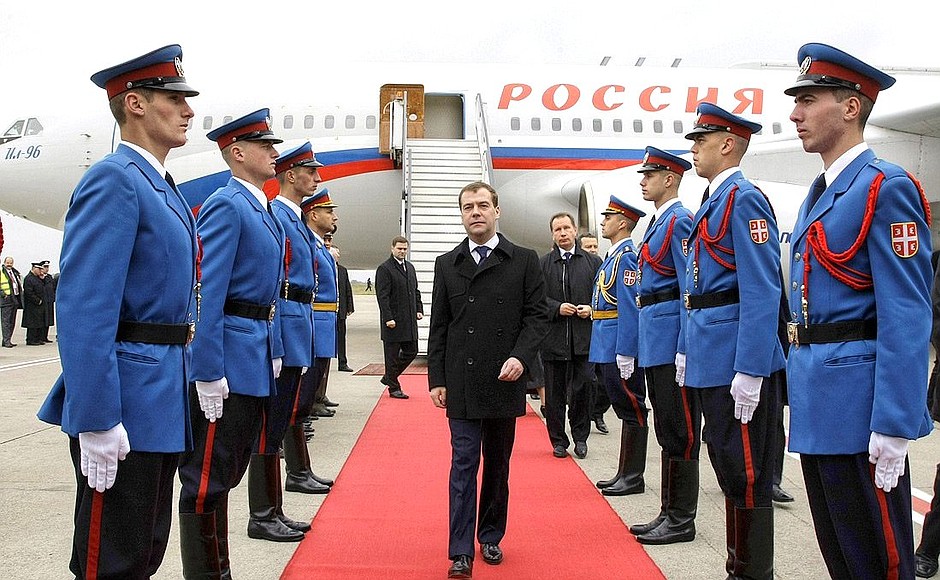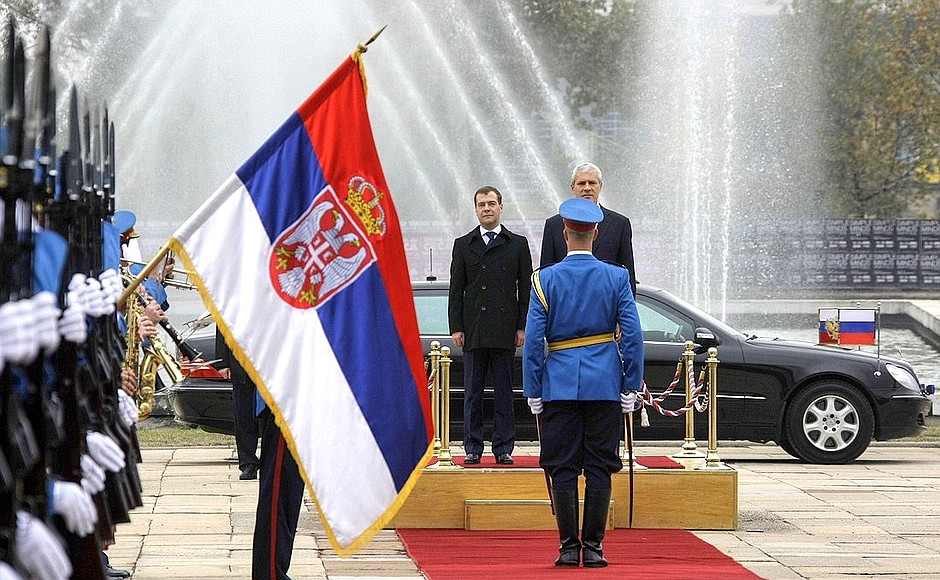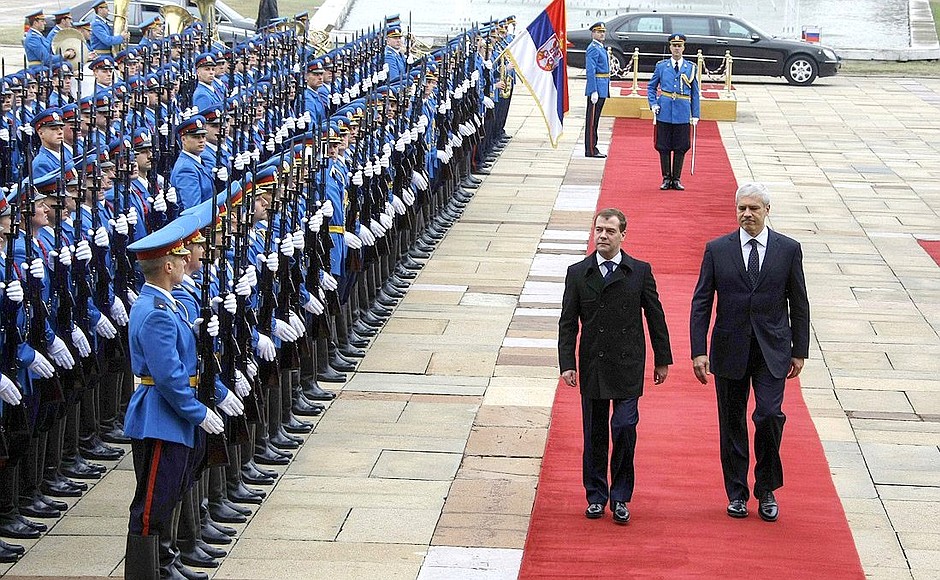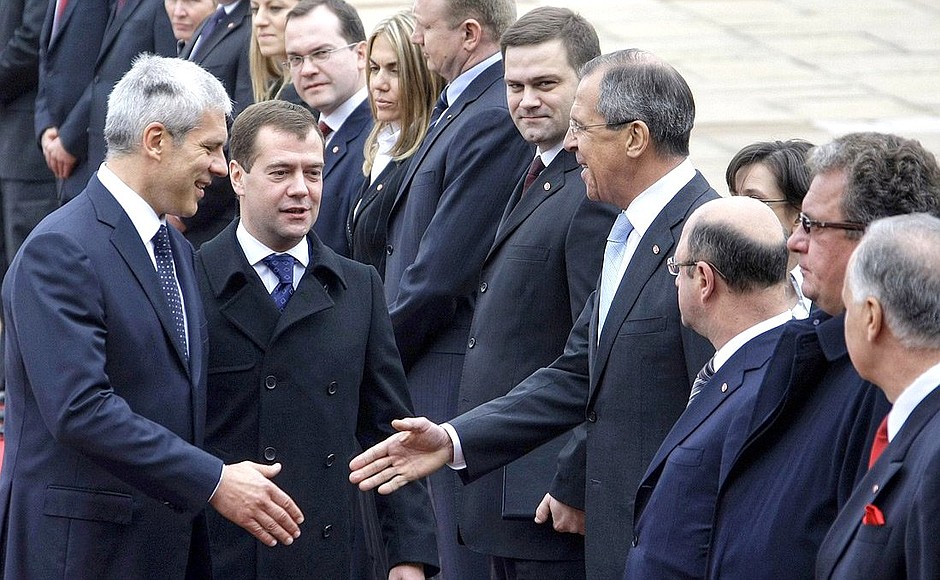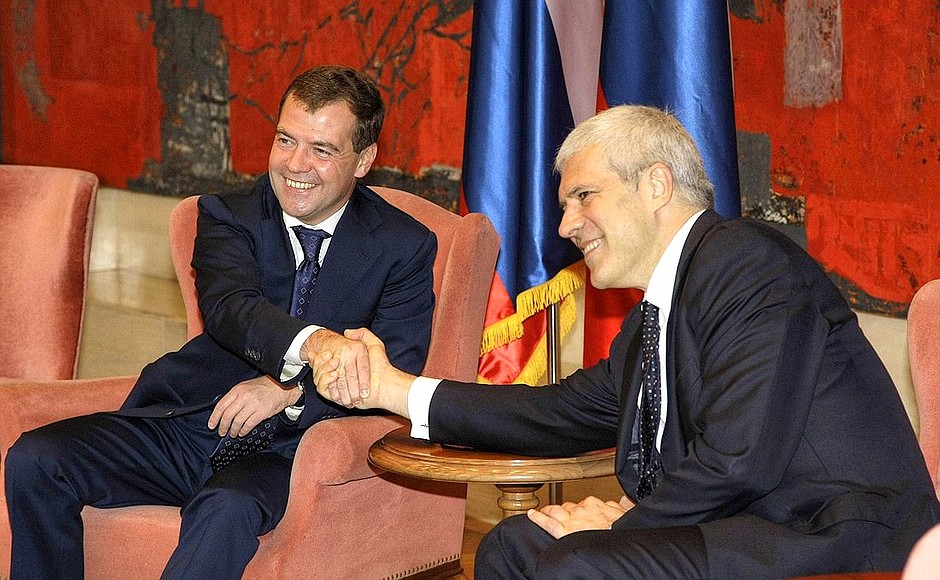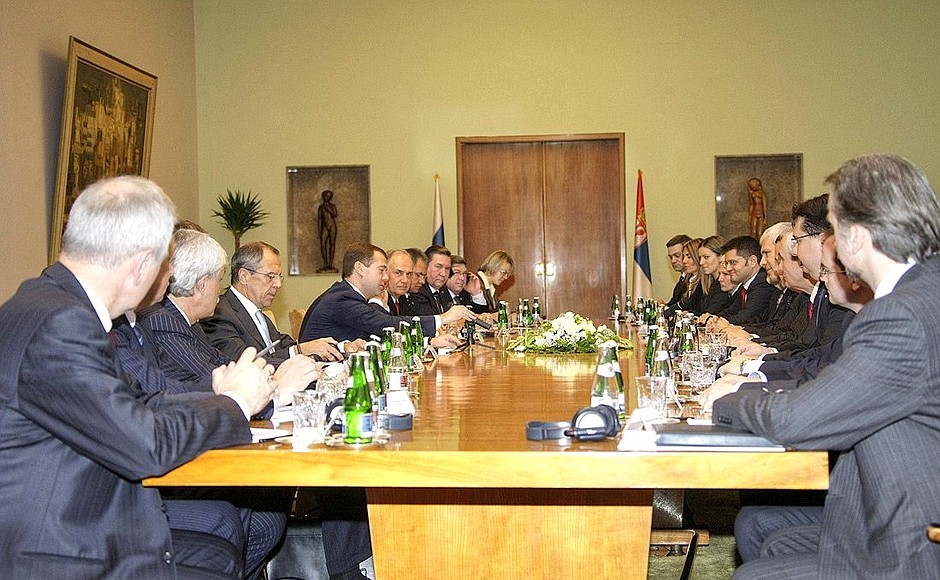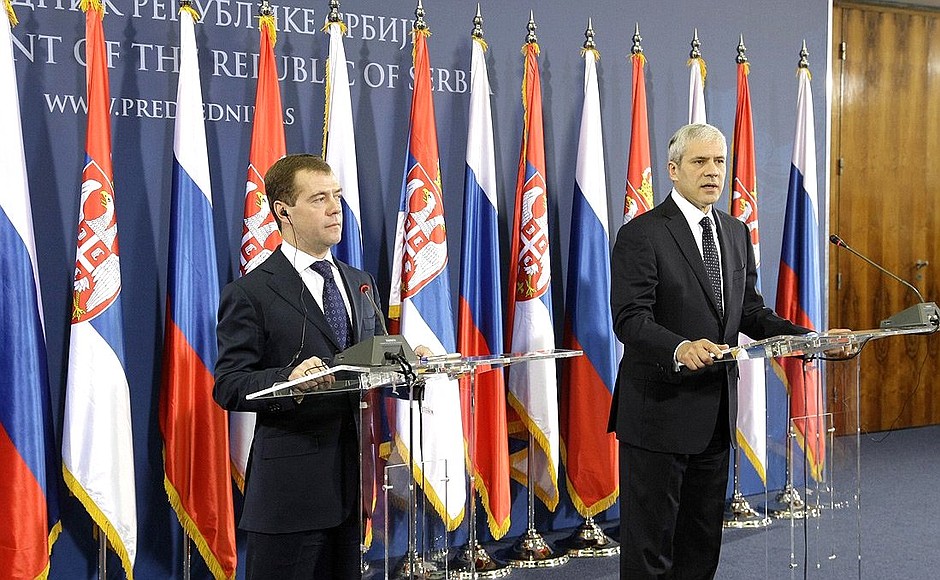Cooperation in energy, transport, culture and education, as well as European security issues and the Kosovo problem were the key topics of discussion.
Following their negotiations, several cooperation agreements, including in the oil and gas sector, were signed in the presence of Dmitry Medvedev and Boris Tadic.
In particular, Gazprom and government enterprise Srbijagas signed a protocol concerning the Serbian section of the South Stream pipeline project, as well as an agreement on creating a joint venture for an underground gas depot in the Serbian village Banatski Dvor.
In accordance with the protocol, within 30 days the parties will set a joint design company South Stream Serbia which will design, build and operate the section of the pipeline running through Serbian territory. Gazprom will have a 51 percent share in the company and Srbijagas will have 49 percent.
The agreement on the depot in Banatski Dvor specifies the conditions and procedures of founding and mechanisms of running the joint venture, whose functions will include the construction and operation of an underground storage depot with an effective storage capacity of 450 million cubic metres. In addition, agreements were signed on cooperation in emergency humanitarian response, on early warning for natural disasters, technological accidents and the mitigation of their effects, on cooperation between the two countries' ministries of internal affairs, as well as on inter-parliamentary cooperation between the Russian State Duma and the Serbian National Assembly.
A programme for cooperation in culture, education, science, sport and youth policy between the governments of Russia and Serbia in 2009–2011 was set up, as well as a memorandum between the Administration of Kursk Region and the Serbian Ministry of Economy and Regional Development on trade and economic cooperation.
